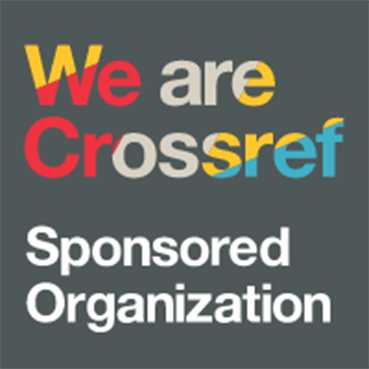Paradigma Pendidikan Islam Kontemporer: Reinterpretasi Tujuan, Kurikulum, dan Relevansi Sosial
Main Article Content
Edo Alvizar Dayusman
Nazaruddin Nazaruddin
Islamic education in Indonesia is currently facing global dynamics that demand a reinterpretation of its paradigm to remain relevant, moderate, and competitive. The traditional paradigm, which tends to create a dichotomy between religious sciences and general knowledge, needs to be reintegrated into a holistic and transformative educational framework that is firmly rooted in transcendent values. This study employs a qualitative approach through library research. Data were collected from recent literature, including books, journal articles, and research reports, that discuss the development of Islamic education, curriculum, and pedagogical transformation. The analysis was conducted descriptively and comparatively to examine the principles, values, and strategies of implementing Islamic education in the contemporary era. The findings highlight five key components of the reinterpretation of Islamic education: educational objectives, curriculum, social relevance, pedagogical approaches, and transcendent values. Table 1 presents a summary of the principles and their practical implications, while Figure 1 illustrates the interconnection of these components, positioning transcendent values as the foundational element. This model underscores the importance of integrating religious sciences with science and technology, strengthening the role of teachers, utilizing digital technology, and instilling social justice and ecological awareness. Consequently, Islamic educational institutions can play a strategic role in nurturing a Muslim generation that is spiritually grounded, globally competitive, and capable of addressing contemporary challenges without losing its divine orientation
Al-Attas, S. M. N. (1991). The Concept of Education in Islām: A Framework For an Islamic Philosophy of Education. International Institute of Islamic Thought and Civilization (ISTAC).
Azra, A. (2019). Pendidikan Islam: Tradisi dan Modernisasi di Tengah Tantangan Milenium III. Prenada Media.
Corbin, J., & Strauss, A. (2014). Basics of Qualitative Research: Techniques and Procedures for Developing Grounded Theory (4th ed.). SAGE Publications.
Creswell, J., & Creswell, J. (2017). Research Design: Qualitative, Quantitative, and Mixed Methods Approaches (5th ed.). SAGE Publications.
Dron, J., Anderson, T. (2023). Pedagogical Paradigms in Open and Distance Education. In: Zawacki-Richter, O., Jung, I. (eds) Handbook of Open, Distance and Digital Education. Springer, Singapore. https://doi.org/10.1007/978-981-19-2080-6_9.
Hajar, A. (2024). Transforming Islamic Education for Environmental and Social Sustainability. Sinergi International Journal of Islamic Studies, 2(2), 82–95. https://doi.org/10.61194/IJIS.V2I2.601.
Hefner, R. W. (2008). Making Modern Muslims: the Politics of Islamic Education in Southeast Asia. University of Hawai'i Press.
Hefner, R. W. (2022). How Indonesia Became a World Leader in Islamic Education: A Historical Sociology of a Great Transformation. Muslim Education Review, 1(1), 3–18. https://doi.org/10.56529/mer.v1i1.25.
Hidayat, A., Fatimah, S., Rosidin, D. N. (2022). Challenges and Prospects of Islamic Education Institutions and Sustainability in The Digital Era. Nazhruna: Jurnal Pendidikan Islam, 5(2), 351–366. https://doi.org/10.31538/NZH.V5I2.2106.
Jamil, A. I. B., Rekan, A.A., Badar, S. (2024). From Integrated to Standard: Reformation of the Islamic Religious Education Curriculum and Teacher Training in Malaysia. In: Akgün, B., Alpaydın, Y. (eds) Global Agendas and Education Reforms. Maarif Global Education Series. Palgrave Macmillan, Singapore. https://doi.org/10.1007/978-981-97-3068-1_9.
Krippendorff, K. (2018). Content Analysis: An Introduction to its Methodology (3rd ed.). SAGE Publications.
Mardhatillah, O., & Surjanti, J. (2023). Peningkatan Kompetensi Pedagogik dan Profesionalitas Guru di Indonesia Melalui Pendidikan Profesi Guru (PPG). Jurnal Pendidikan Ekonomi Undiksha. https://doi.org/10.23887/jjpe.v15i1.65200.
Muhaimin. (2012). Pengembangan Kurikulum Pendidikan Agama Islam. Yogyakarta. Araska.
Nawawi, M. A. (2023). Transformative Islamic Education for the Social Change Adjustment Strategy. Al-Ishlah: Jurnal Pendidikan, 15(4), 6638–6649. https://doi.org/10.35445/alishlah.v15i4.4185.
Pakpahan, P. L., & Habibah, U. (2021). Manajemen Program Pengembangan Kurikulum PAI dan Budi Pekerti dalam Pembentukan Karakter Religius Siswa: Management of IRE Curriculum Development Program and Character in Forming Student’s Religious Character. Tafkir: Interdisciplinary Journal of Islamic Education, 2(1), 1–20. https://doi.org/10.31538/TIJIE.V2I1.19.
Patton, M. (2014). Qualitative Research & Evaluation Methods: Integrating Theory and Practice (4th ed.). SAGE Publications.
Rieckmann, M. (2017). Education for Sustainable Development Goals: Learning Objectives. UNESCO Publishing.
Rosyad. (2020). The integration of Islamic education and multicultural education in Indonesia. Al-Afkar Journal for Islamic Studies, 3(1), 164–181. https://mail.al-afkar.com/index.php/Afkar_Journal/article/view/87.
Saputra, D., Fawaidi, B., & Salabi, A. S. (2024). Qur’anic Principles of Educational Supervision: An Effort to Realize Quality Islamic Education. ITQAN: Jurnal Ilmu-Ilmu Kependidikan, 15(2), 190–202. https://doi.org/10.47766/itqan.v15i2.2012.
Sharif, M. S. A. M., Kamarudin, M. F., Kamarulzaman, M. H., Mohd Saali, M. M. S. N., Esrati, M. Z., & Latif, M. N. (2022). Inovasi Pengajaran dan Pembelajaran Sirah Melalui Permainan dalam Kalangan Pelajar Pintar Cerdas. The International Journal of Maqāṣid Studies and Advanced Islamic Research, 3(2), 49–62. https://www.almaqasid.my/index.php/ojs/article/view/43.
Zed, M. (2008). Metode Penelitian Kepustakaan. Jakarta. Yayasan Obor Indonesia.








